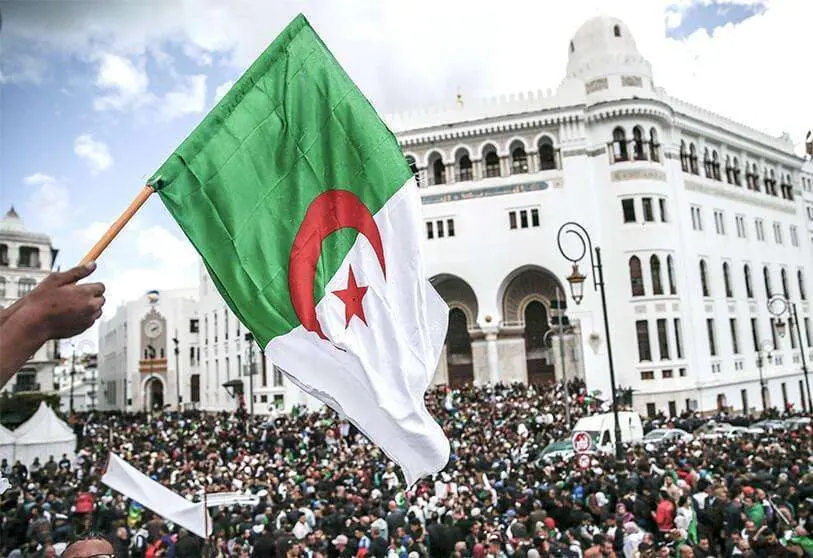Algeria, the Atlantic and the Canaries

For some years now, the Polisario has been of no interest to anyone. Firstly, on its own merits by invading the Guerguerat buffer zone, ignoring UN warnings, and secondly, because Algeria has stolen its thunder.
Today, the international community is in no doubt about this. Algeria is not only the promoter and main party to the conflict, but has long been fighting for an outlet to the Atlantic with claims to the Canary Islands.
On 14 November 1975, Algeria was excluded from the Declaration of Principles between Spain, Morocco and Mauritania, in which the Spanish government stated its resolve to decolonise the territory of the Sahara, putting an end to its responsibilities and powers over the territory as an administering power. This came a month after the International Court of Justice in The Hague unanimously recognised (16 October 1975) that the Sahara was not a territory without an owner (Terra nullius), admitting legal links between the Saharawi population and the Kingdom of Morocco, as well as with Mauritania. In no case with Algeria.
Algeria would later, in February 1978, demand the decolonisation of the Canary Islands before the OAU. Its Liberation Committee, meeting in Tripoli from 13 to 18 February 1978, agreed to consider the Canary Islands archipelago as an "African country to be decolonised", in addition to granting economic and logistical support to the MPAIAC, which was recognised as a "Canary Islands Liberation Movement". This movement had its official headquarters in Algeria, as did the Polisario, from where its leader Antonio Cubillo and the various Polisario leaders broadcast separatist propaganda against Spain and Morocco.
In view of the uncertainty surrounding the OAU assembly discussion behind closed doors on 20 February 1978, the Embassy of the Kingdom of Morocco in Madrid declared in a press release that the Canary Islands are Spanish territory. And, with regard to the alleged support for the separatist Cubillo and his organisation by states neighbouring the Canaries, including Morocco, the Moroccan government stressed that it "does not recognise Cubillo or his organisation as a liberation movement, and consequently "is not prepared to provide any kind of facilities to this separatist organisation".
Between 7 and 18 July of the same year, a new meeting of both the Council of Ministers and the Assembly of the OAU was held in Khartoum to deal with the issue of Africanism and decolonisation of the Canary Islands, among other issues. As a result, the resolution was rejected by the Council. Voting against were MOROCCO, Mauritania, Cape Verde, Chad, the Central African Empire, Cameroon, Djibouti, Egypt, Ivory Coast, Liberia, Mauritius, Senegal, Tunisia, Upper Volta and Zaire, Gambia, Gabon, Ghana and Togo.
Those who voted in favour were ALGERIA, Libya, Mali, Guinea-Conakry, Sierra Leone, Benin, Nigeria, Congo-Brazzaville, Equatorial Guinea, Sudan, Ethiopia, Somalia, Kenya, Tanzania, Uganda, Rwanda, Burundi, Malawi, Zambia, Botswana, Lesotho, Swaziland, Comoros, Seychelles and Madagascar.
This was a failure for Algeria. But why did it want to decolonise the Canary Islands? Clearly, the Algerian military wanted to liberate the people of the Canary Islands from imperialism by establishing a republic presided over by Cubillo. This separatist said at the time that he would use the territory of the Sahara in his fight against the Canary Islands (ABC, 26-02-1978).
Given this background, what can we expect from Algeria?
The fact that Algeria has recalled its ambassador for consultations following Spain's recognition of the Moroccan status of its Southern Provinces and its ratification this Wednesday by the Prime Minister in the Spanish Congress of Deputies, that Algeria has suspended the Friendship and Cooperation Agreement with the Kingdom of Spain and, moreover, has announced the freezing of direct debits for commercial transactions linked to Spanish exports to the military's country, makes it a clear party to the conflict in the eyes of the international community.
Moreover, with this decision Algeria reaffirms its expansionist ambition towards the Atlantic Ocean. It tried with its ridiculous plan to divide the Moroccan Sahara in two, namely Sakia al-Hamra for Morocco and Wad Edahab for Algeria (Polisario) with a view to gaining access to the Atlantic, but to no avail. Finally, he ordered the Polisario forces to occupy the five-kilometre buffer zone of the Guerguerat, from where they came out painting with the arrival of the Moroccan royal gendarmerie. All this, in search of an exit to the sea, without success. Many attempts and many failures since 1978.
In this standoff with Spain, Algeria is only getting muddied. It is more than likely that Algeria will cut off the Medgaz, direct to Almeria, with the beginning of next autumn just around the corner. And it will be up to the EU to decide on alternatives. If these are taken in time, they will be less costly and safer.
The Algerian military junta does not give a damn about the welfare of its population. The closure of the Maghreb Europe Gas Pipeline (GME) is costing it millions of dollars. If it also cuts off the Medgaz and stops receiving Spanish exports, which is much needed in a country that only produces gas and spends everything obsessively on arms, it would be ruined. In the event of a gas cut-off, it would be a blunder to expect to receive it through Italy. The Algerian military junta would cut it off anyway.
Algeria's self-destruction knows no bounds.
Algeria presented the Polisario cause as something humanitarian, supposedly in accordance with international law, and so on, when its intention, since the time of the bloodthirsty Boumedian, was to expand beyond the Atlantic Ocean on the back of MAPAIC and now Polisario, with Soviet, Cuban, Venezuelan, Vietnamese, etc. support.
The Algerian military junta thus explicitly assumes its political responsibility and incrimination in the fate of the Saharawi hostages in Tindouf.

